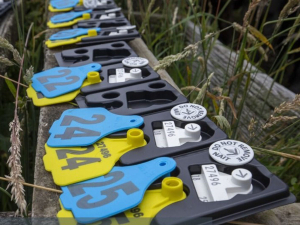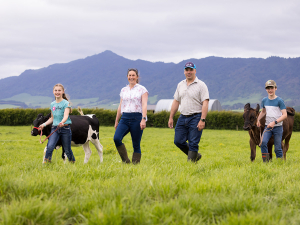Māori farming organisations are increasing their investment in horticulture.
The new investment strategy isn’t only for better financial returns and job prospects, but is a step towards a more sustainable future for the next generation.
Rotorua-based Ngāti Whakaue Tribal Lands (NWTL) general manager Ray Morrison says any investments they consider are guided by mana whenua and kaitiakitanga values.
“When we look at investment propositions, diversification plays a big part in our decisionmaking along with the value proposition for our owners, including shareholder wealth and job creation,” he said.
“These opportunities must also align with our organisational values and meet our risk profiles to ensure they also make commercial sense.”
NWTL in 2007 got out of dairy farming due to environmental and commercial reasons when it reached a settlement with Bay of Plenty Regional Council under its nitrogen incentives programme.
NWTL has recently tripled its forestry footprint due to the impact carbon has made on the overall attractiveness of forestry investment, and it has explored investing in horticulture.
“We are part of the Te Arawa Primary Sector Group (TAPS) of Te Arawa landowners who collectively own over 30,000ha,” he said.
“We collaborate where possible through joint research, information sharing and investment opportunity analysis in order to leverage any collective advantage from potential agribusiness opportunities.”
United Fresh New Zealand president Jerry Prendergast says the strong interest Māori trusts are showing in investing in horticulture is exciting.
“Iwi trusts have significant capital, and this combined with their long term view of investments is excellent for our industry as a whole. It utilises land in an efficient way, creates jobs, is good for our economy and enhances our reputation for growing and supplying NZ and the world with the world’s best fruit and vegetables.”
In a move to diversify its portfolio, get better returns from its land and become more environmentally sustainable, Pāmu, NZ’s largest farmer, has recently converted a 40ha block to avocados.
Jen Scoular, NZ Avocado chief executive, says New Zealand needs more discussion of optimal land use.
“When we look at avocados, we look at market demand, infrastructure to manage growth and feasibility in our climate,” she said.
“I feel that [within the growing areas for avocados] if we add a 4ha block of avocados to the average size dairy farm in NZ, you get diversification, great kai, a succession plan -- because whānau can run a 4ha avocado orchard -- and it optimises the financial return to the farmer and the country.”
Māori organisations also have a strong sense of social responsibility, so making investment decisions based solely on financial returns is not how these organisations tend to operate.
Katie Paul is one of the new generation of Māori governors of multi-million dollar Māori land trusts in Bay of Plenty.
“Doing business with Māori trusts is not just a commercial transaction,” she said. “Our owners have strong values in sustainability and the environment. If these values aren’t considered, then this could limit your time as a governor on these trusts.
“To put it simply, we are kaitiaki. We inherit the land then we pass the land on. We need to think long term and intergenerationally.”











